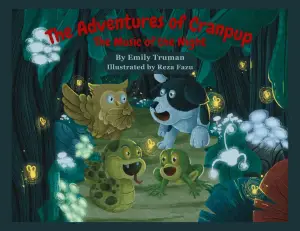I recently finished reading The Book of Lost Names by Kristin Harmel, and it was an emotional journey I won’t forget anytime soon. As a fan of historical fiction, I was drawn to this book due to its premise, which revolves around the exceptional bravery of a young woman forging documents to help Jewish children escape the Nazis during World War II. The blend of historical accuracy and creative storytelling always captivates me, and this book promised just that.
The narrative oscillates between Eva’s life as a graduate student in 1942 and her present-day existence as a retired librarian in Florida. The book opens with a gripping image—the photograph of the Book of Lost Names, an eighteenth-century religious text that Eva recognizes. This moment instantly pulls you into her memories of hardship and resilience. It’s a fascinating setup, especially as the story explores the looting of libraries during the Nazi regime, a poignant reminder of the broader tragedy that befell countless others.
One of the standout aspects of this book is the rich characterization. Eva is portrayed with raw honesty; her fears are palpable as she navigates the perils of war. The dynamic between her and Rémy, the mysterious forger, adds depth to the narrative. Their relationship transforms from one of reluctant partnership to profound connection, driving the emotional core of the story. As mentioned in a review by Mariejws, the “tension had me hooked,” and I wholeheartedly agree. The characters are dynamic and nuanced, which paints a vivid picture of both the danger and the hope intertwined in their lives.
Another highlight is the author’s ability to elicit a range of emotions. The journey that Eva undertakes is both heartbreaking and inspiring, often leaving me teary-eyed. It’s a testament to the resilience of the human spirit amidst the terrifying realities of evil, resonating well with the quote from the product description about how the novel is a “testament to the resilience of the human spirit and the power of bravery and love in the face of evil.”
However, while I thoroughly enjoyed reading the book, there were a few drawbacks worth mentioning. Some readers, like Sue, pointed out that elements of the romance may come off as “romantically far-fetched.” I can see how some might feel that way, particularly since a portion of the story hinges on finding happiness amidst such dire circumstances. Additionally, there were moments where I wished for deeper introspection from Eva. I found myself craving more inner dialogue regarding her faith and personal beliefs, as well as additional interactions with secondary characters to enrich the story’s emotional tapestry.
Despite a few quibbles, the book is undeniably a captivating read. The dual timelines add layers to the narrative, drawing readers into the contrasts between past and present. In fact, the seamless transition between timelines enhances the suspense, keeping you eager to unravel Eva’s fate and that of her fellow forgers, all while preserving the real names of the children they help save.
In conclusion, The Book of Lost Names beautifully weaves history, emotional depth, and a compelling storyline together, making it a noteworthy addition to the genre of historical fiction. The blend of hope and loss, coupled with strong female characters, makes it not just a book to read, but an experience to reflect upon. I would recommend it to anyone who appreciates stories of resilience and bravery, especially set against the backdrop of one of history’s darkest times. It’s a worthy exploration of how love and sacrifice can prevail even amidst overwhelming despair, and I wholeheartedly commend it.
Discover a captivating tale of love and resilience in The Book of Lost Names. >>








